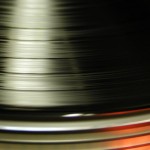For the arts in the twenty-first century, for both practitioners as well as the venues that house them, the watchword is becoming diversity, as two recent articles demonstrate.
A recent feature in the San Franciso Classical Voice (via the ArtsJournal) highlights this from the point of view of a performer, cellist Zoe Keating, illustrating how diversifying has allowed her to sustain a career as a musician.
As she has found, using the Internet to your advantage is crucial, side-stepping more traditional means of engaging with a wider audience and finding new, media-rich ways of reaching them: social media, Facebook and Twitter, YouTube, and blogging. Classical musicians are also bloggers: Stephen Hough blogs for The Daily Telegraph, for instance, whilst the conductor Mark Wigglesworth blogs for Gramophone magazine. Keeping in touch with your audience and making them feel involved is important, whether you are an individual performer, an ensemble or a venue: it’s all about building a fan-base, and then sustaining it.
Artists are learning to manage the different avenues within their own careers: publicity, marketing, teaching, performing, workshops, educational projects, and making their own recordings. Using the internet is a cost-effective means of promoting yourself and doing your own promotion. Widening the musical genres across which you operate is becoming increasingly important, making you more employable (as well as harder to classify): simply pigeon-holing yourself as a classical or jazz musician is no longer helpful. Internationally-renowned pianist Joanna Macgregor performs across a wide range of genres, everything from Baroque to jazz and more, as well as being artistic director of the Bath International Festival.
Similarly, but from the perspective of an arts venue, an article in the New York Times discusses the importance of diversity to performance venues, in this case to the New Jersey Performing Arts Centre in Newark.
As its President and Chief Exective indicates, “The basic economic model of presentations, tickets sales and fund-raising is beginning to break down.” Venues need to attempt to become the social and artistic heart of their communities, to weave themselves inextricably into those communities in which they are situated to make themselves economically viable as well as indispensable.
“The arts center has to be the town square of New Jersey. Corporate events, weddings, bar mitzvahs, poetry festivals, other nonprofits doing their fund-raisers here, graduations, job fairs. It has to be more than what’s on your stages.”
Being pro-active across a range of disciplines, as well as being able to see creative possibilities in more areas than just simply performing, can sustain a musical career in the twenty-first century, and keep an arts venue operating. Especially in the light of recent cuts to the arts and funding issues…


 The University of South Carolina is offering a degree entitled ‘Lady Gaga and the Sociology of Fame,’ upon which presumably students can study aspects of the popstar’s persona, her publicity-driven lifestyle, and her impact on popular culture of the twenty-first century.
The University of South Carolina is offering a degree entitled ‘Lady Gaga and the Sociology of Fame,’ upon which presumably students can study aspects of the popstar’s persona, her publicity-driven lifestyle, and her impact on popular culture of the twenty-first century.
 I’ve
I’ve